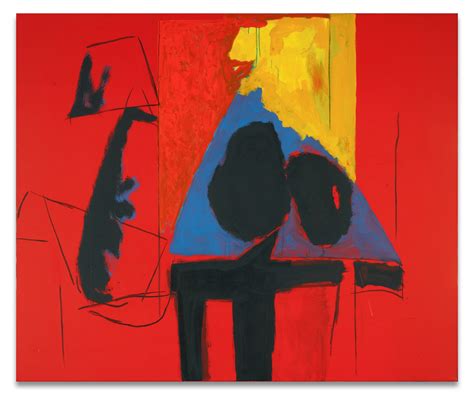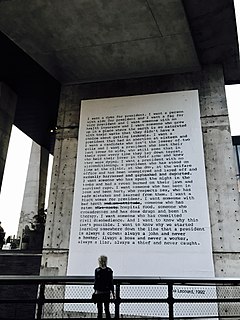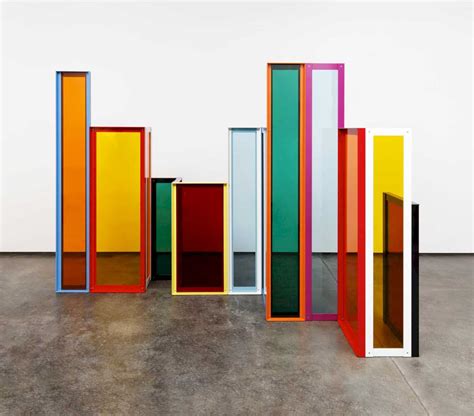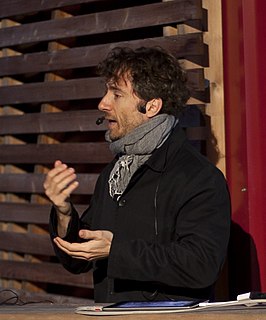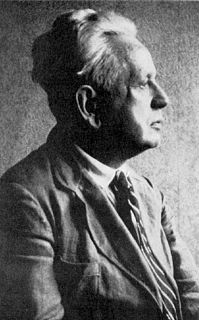A Quote by Nicholas Serota
Much modern art is, at first sight, unnerving... in the contemporary world, we have come to expect instant response and immediate understanding.
Related Quotes
Magic is a combination of art and science. It's an art because of the traditional parts of things, the graceful gestures, the sonorous invocations, the use of colour, sight, sound, all of these things make it very much an art form. Yet it is also a science as well because we expect something to come of what we do. Using and creating these almost dreamlike inner landscapes in which we can live, move, and have our being.
Modern art to me is nothing more than the expression of contemporary aims of the age we’re living in. All cultures have had means and techniques of expressing their immediate aims – the Chinese, the Renaissance, all cultures. The thing that interests me is that today painters do not have to go to a subject matter outside of themselves. Most modern painters work from a different source, they work from within.
There is the specter of "realism" that is still haunting Chinese contemporary art - that art is only an instrument, an instrument to reflect society, that it must be useful for society. Also, I have noticed many Western media outlets are very insistent on understanding contemporary art in China through this kind of realist approach. Sometimes I even sense that they are intent on, as we say in China, "picking bones of politics out of an egg of art." Or perhaps they see art as merely an instrument to reflect society.
Contemporary art and manga - what is the same about them? Nothing, right? The manga industry has a lot of talented people, but contemporary art works on more of a solitary model. No one embarks on collaboration in contemporary art in order to make money. But in the manga world, everyone is invested in collaboration. The most important point is that the manga industry constantly encourages new creations and creators.
A lot of the times the first take was the best, because the actors are not analyzing themselves as much; they just do it. I believe in happy accidents and I'm not necessarily into actors getting the dialogue exactly as I wrote it; I'm much more into them understanding the motivations and have it come out in a natural way, and maybe catch something that I didn't expect.
There is a conceptual depth as well as a purely visual depth. The first is discovered by science; the second is revealed in art. The first aids us in understanding the reasons of things; the second in seeing their forms. In science we try to trace phenomena back to their first causes, and to general laws and principles. In art we are absorbed in their immediate appearance, and we enjoy this appearance to the fullest extent in all its richness and variety. Here we are not concerned with the uniformity of laws but with the multiformity and diversity of intuitions.
Growing up in the '70s and '80s when my dad had an art gallery, one of the things that frustrated me was the world seemed so tiny, and to appreciate contemporary art, you needed a history of art, a formal education. I was more interested in the people, and that's why I went into the movie business in the first place.






